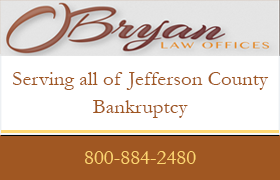Eastwood Reorganization Lawyer, Kentucky
-
Sponsored Law Firm
-
 x
x

Click For More Info:
-
Obryan Law Offices
9311 Preston Hwy Louisville, KY 40229» view mapBankruptcy Lawyers That Fight For You
Obryan Law Offices has helped thousands of families restore peace and order to their lives. Call us today!
800-884-2480
Not enough matches for Eastwood Reorganization lawyer.
Below are all Eastwood Bankruptcy & Debt lawyers.
Julie Ann O'Bryan
Bankruptcy & Debt, Accident & Injury
Status: In Good Standing *Status is reviewed annually. For latest information visit here
Susan Mary Meschler
Family Law, Divorce & Family Law, Bankruptcy
Status: In Good Standing *Status is reviewed annually. For latest information visit here
Anthony Allen Waits
Insurance, Credit & Debt, Medical Malpractice, Social Security
Status: In Good Standing *Status is reviewed annually. For latest information visit here
Lori M Reynolds
Corporate, Corporate, Credit & Debt, Personal Injury, Employee Rights
Status: In Good Standing *Status is reviewed annually. For latest information visit here
Gregory E Watson
Credit & Debt, Civil Rights, Litigation, Federal Appellate Practice, Wills
Status: In Good Standing *Status is reviewed annually. For latest information visit here
Kathryn H. Hogan
Real Estate, Lawsuit & Dispute, Credit & Debt, Collection, Civil Rights
Status: In Good Standing *Status is reviewed annually. For latest information visit here
Robert T Blackburn
International, Gift Taxation, Business, Bankruptcy & Debt
Status: In Good Standing *Status is reviewed annually. For latest information visit here
Mervin Wayne Warren
Collection, Litigation
Status: In Good Standing *Status is reviewed annually. For latest information visit here
William A Gohmann
Estate, Credit & Debt, Commercial Real Estate, Wills
Status: In Good Standing *Status is reviewed annually. For latest information visit here
Clay Talley
Patent, Estate Planning, Employee Rights, Bankruptcy
Status: In Good Standing *Status is reviewed annually. For latest information visit here

 Julie Obryan Jefferson, KY
Julie Obryan Jefferson, KY About UsObryan Law Offices
About UsObryan Law Offices FAQFrequently Asked Questions
FAQFrequently Asked Questions